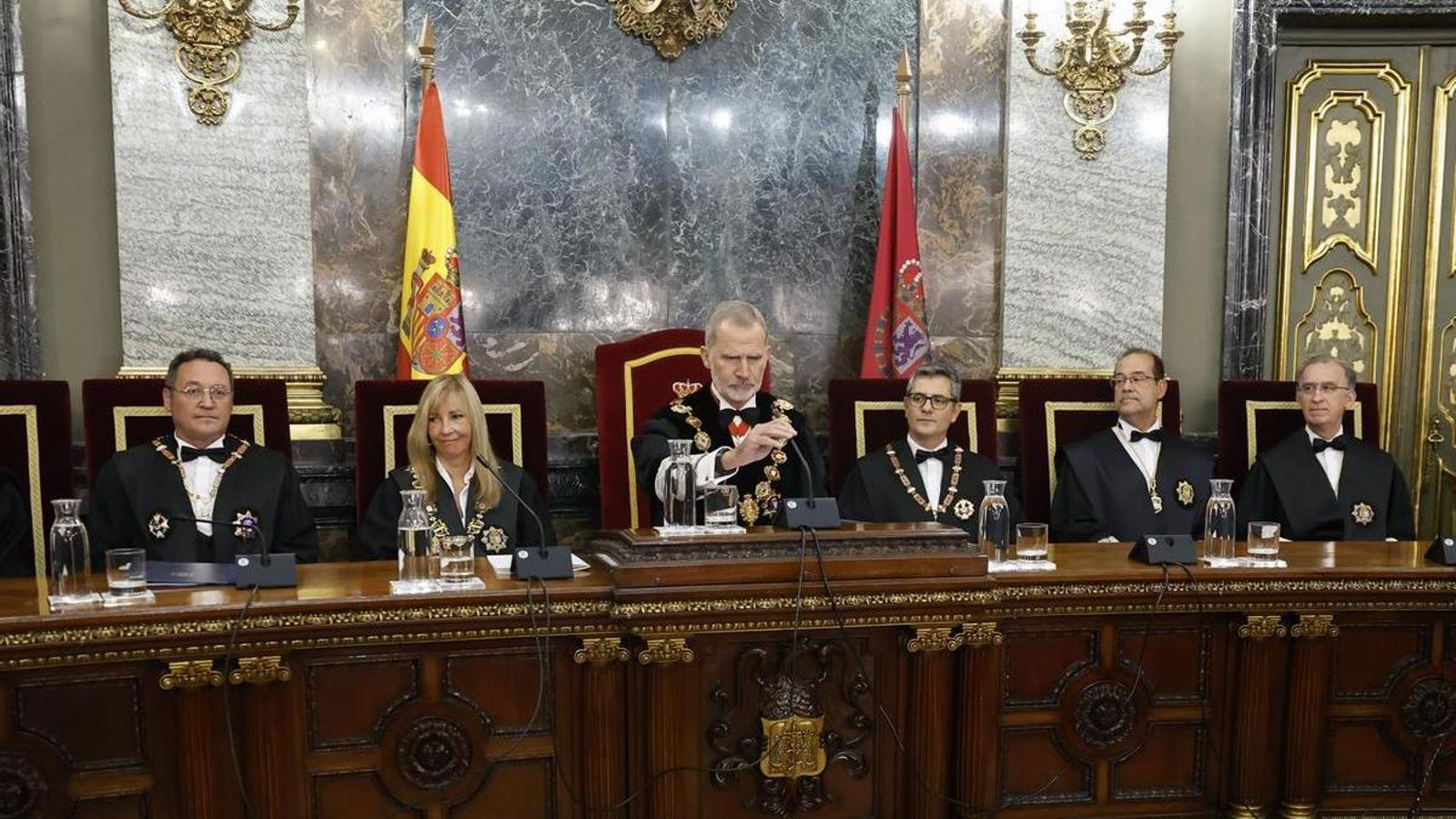The judges, the prosecutor, and a leader who follows Ayuso


In all this fuss against the Attorney General, Álvaro García Ortiz, the main issue is sometimes lost sight of. Namely, that the accusation is of having leaked a real and true email in which a criminal confesses to having defrauded the Treasury and asks for a deal to reduce his sentence. García Ortiz is not accused of malfeasance, misappropriating other people's money, or using his position to enrich himself. This, for example, is included in the judge's report against former Finance Minister Cristóbal Montoro, who is not only under investigation for changing laws to benefit certain companies but also publicly flaunted his knowledge of the tax situation of his opponents, and also of his co-religionists. In other words, he revealed secrets that he equally couldn't reveal, or threatened to do so.
It is true that in the case of the Attorney General, being a preeminent figure in the Spanish judicial system, the situation could be more serious, but it is also good to remember the origin of the entire case that ended up taking him to court. Especially because this Friday the leader of the Popular Party, Alberto Núñez Feijóo, did not appear. linstitutional act of opening of the judicial year in protest against the presence, required by law, of the Attorney General. He went, instead, to the event that the fraudster's partner had organized The case begins with Isabel Díaz Ayuso, who is trying, and in some quarters succeeding, to play the role of the victim of an alleged Spanish government conspiracy. Not to mention, moreover, that Feijóo had to spend the event justifying himself for having snubbed the king, who was presiding over the event he hadn't attended, and the judiciary itself, which organized it.
That said, there was much anticipation surrounding the speeches that both García Ortíz and the president of the General Council of the Judiciary (CGPJ), Isabel Perelló, would deliver. Even more so, there was anticipation surrounding whether there would be a boycott. Regarding the latter point, it must be said that the judges' behavior was exemplary, as befits the people of order that they are. The tension was present, but so was respect and correctness. This, moreover, is what Perelló demanded in her speech, in which she politely took aim at both sides, although most of the criticism was directed at the Spanish government. On the one hand, she lamented, without directly mentioning it, the accusations of politicization of some judges made by the Prime Minister, Pedro Sánchez, and defended judicial independence, which she considers challenged by the legislative changes proposed by the Moncloa. On the other hand, she also reminded her colleagues that judicial independence does not mean carte blanche to do whatever one wants, and that there is an internal system to monitor judicial malpractice. The Attorney General, for his part, began by insisting that he attended the event because he believes "in justice and the rule of law." However, perhaps his refusal to resign—which Caesar's wife should not only honor but also appear to honor—is doing more harm than good to the institution he leads. All of this damages the image of justice among the public and, despite the legitimacy of many criticisms, is something we as a society cannot afford. Without trust in justice, there can be no healthy democracy.
